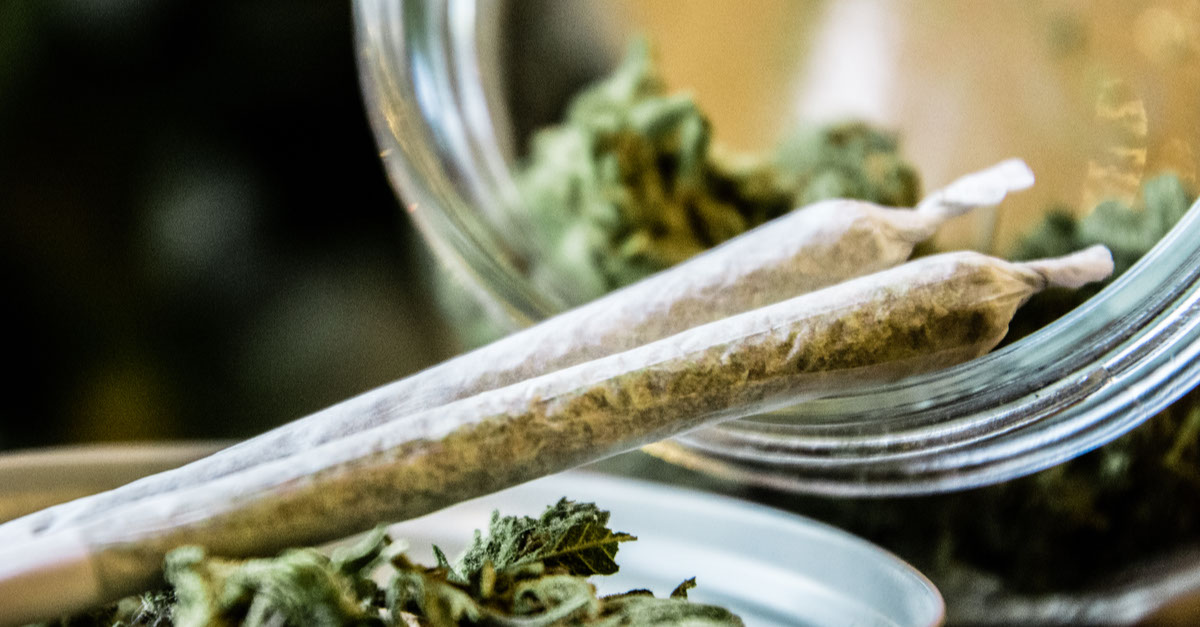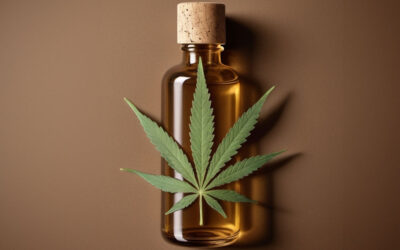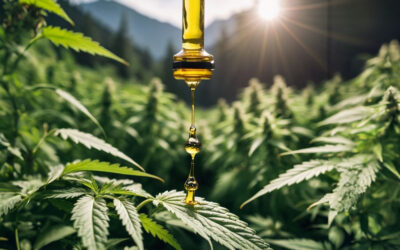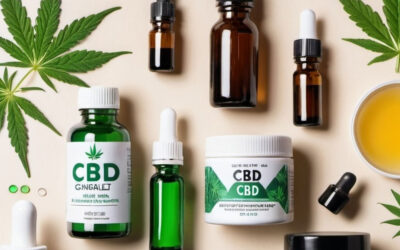Cannabinoids Are Here to Stay. Here’s the Scoop on the Six Most Important Ones (So Far)

Cannabis contains more than 100 cannabinoids, each unique in effects and chemical structure. THC is the most commonly known cannabinoid and—in recent years—CBD. As the marijuana and hemp industry expands, we are seeing more research on the effects of other cannabinoids. And of course, we’re also seeing more products containing them. This post aims to briefly explain the differences and effects of six primary cannabinoids, including CBGA, THC, THC-V, CBC, CBN, and CBC.
CBGA
The fundamental compound in cannabis flowers is CBGA (cannabigerolic acid). Some might say it’s the most crucial cannabinoid of all. That’s because, without CBGA, we wouldn’t have any of the others. CBGA serves as a precursor to all of them.
Each cannabinoid starts as CBGA and is converted by the plant itself via decarboxylation. When cannabis is heated, the cannabinoids decarboxylate, turning into the common cannabinoids we see in hemp-derived products. Decarboxylation happens via heat through smoking or vaping. But other decarboxylation methods can take place before a consumer gets the product. For example, edibles are typically crafted on a stovetop or oven.
Unlike the cannabinoids commonly found in hemp-derived products, CBGA itself does not require decarboxylation to be effective. This means you can ingest it by consuming raw hemp. Minimal research has been done to learn more about CBGA—other than studying how it converts into THCA for pharmaceutical purposes. Some studies, however, have shown CBGA to be potentially beneficial for:
• Cardiovascular disease
• Metabolic disorders
• Colon cancer
THC
THC (tetrahydrocannabinol) begins in the cannabis plant as CBGA. The plant converts it into THCA, and decarboxylation turns it into THC. THC is the most well-known and common cannabinoid. It’s what makes marijuana intoxicating, so it can make or break whether retailers can sell a product containing this chemical. But it’s not just for getting high (although that’s fun too). THC has many reported health benefits, including:
• Pain relief
• Nausea relief
• Sleep aid
• Appetite increase
• Anti-bacterial uses
• Anti-seizure uses
CBD
CBD (cannabinol) also begins in the cannabis plant as CBGA. The plant then converts it into CBDA, and decarboxylation turns it into CBD. It is not intoxicating though some users do report “feeling it.” This is most likely due to the possible ability of CBD to relieve anxiety or depression. So in this way, it can be mood-altering in a non-psychoactive way.
Thanks to the 2018 Farm Bill, CBD products are widely available and legal (to varying degrees) all over the US. The effectiveness of CBD and its legality have made it the most commonly known and used cannabinoid (after THC).
CBD holds most of the same health benefits as THC but without the intoxication and side effects such as anxiety or slowed-reaction time. As a result, CBD use is an excellent way to benefit from cannabis without impairment.
CBN
CBN (cannabinol) begins in the cannabis plant as CBGA. The plant converts it into CBNA, and decarboxylation turns it into CBN. As a natural byproduct of THC degradation, CBN is best known as the cannabinoid produced when THC ages.
In the course of aging, THC can naturally convert into CBN at a rate of 25% per year. Since older cannabis usually contains more CBN than younger cannabis, many prefer it for its medicinal benefits. CBN’s potential health benefits include:
• Pain relief
• Anti-inflammation
• Sleep-aid
• Cancer-fighting
CBC
CBC (cannabichromene) begins in the cannabis plant as CBGA. The plant converts it first into CBCA. And just like CBN, decarboxylation turns it into CBC.
Cannabis strains today contain so little cannabichromene that its individual effects are typically not noticeable, even though CBC does many of the same things as CBD. The value of CBC in whole-plant marijuana comes from how it contributes to the entourage effect.
When combined with other cannabinoids and brain chemicals, CBC enhances their effects. This is why you don’t see many hemp-derived products on the market containing CBC only. So while consuming CBC on its own is of little to no benefit, using it in conjunction with other cannabinoids can be very effective.
THC-V
THC-V (tetrahydrocannabivarin) begins as THC-VA and decarboxylates into THC-V. However, it’s the only one that does not originate from CBGA like the other cannabinoids. listed. It is only intoxicating in higher doses, and the effects do not last as long as THC. THC-V has recently become a cannabinoid of interest. That’s because it may be able to block the anxiety effects that some people get from THC. So theoretically, when THC-V is used alongside THC, those familiar anxiety side-effects won’t occur. Other possible benefits of THC-V include:
• Appetite suppression
• Metabolism-boosting
• Blood sugar control
• Anti-inflammation
Closing Thoughts
Our knowledge of the entire range of cannabinoids (and the endocannabinoid system) is still rudimentary. You could say that science has only uncovered the tip of the iceberg. However, as the cannabis industry grows, more will be revealed through research and perseverance. Do you know of any new or interesting research on cannabinoids? We’d love to hear it!
These statements have not been evaluated by the Food and Drug Administration. These products are not intended to diagnose, treat, cure or prevent any disease.
Latest GreenCore News
CBGA: The Mother of All Cannabinoids
CBGA: The Mother of All Cannabinoids CBGA, often called the "mother of all cannabinoids," is gaining significant attention. This foundational cannabinoid is showing promise in reducing seizures and treating conditions like insomnia and chronic pain. Recently, its...
Cannabis Concentrate Spotlight: Rick Simpson Oil
Cannabis Concentrate Spotlight: Rick Simpson Oil Rick Simpson Oil has become a cornerstone in the world of cannabis products. Renowned for its versatility, this concentrate offers a multitude of benefits for both medical patients and recreational users.In this blog,...
CBD 101: Properties, Production, and Potential
CBD 101: Properties, Production, and Potential CBD has rapidly evolved from a little-known compound to a household term. But while it has become a ubiquitous term, many remain unclear on what cannabidiol actually is. In this blog, Green Core Specialty Insurance...
Contact Us
Office Location
1600 Golf Road, Suite 1200
Rolling Meadows, IL 60008
Office Hours
M-F: 8am - 6pm
Phone
847-201-4600



